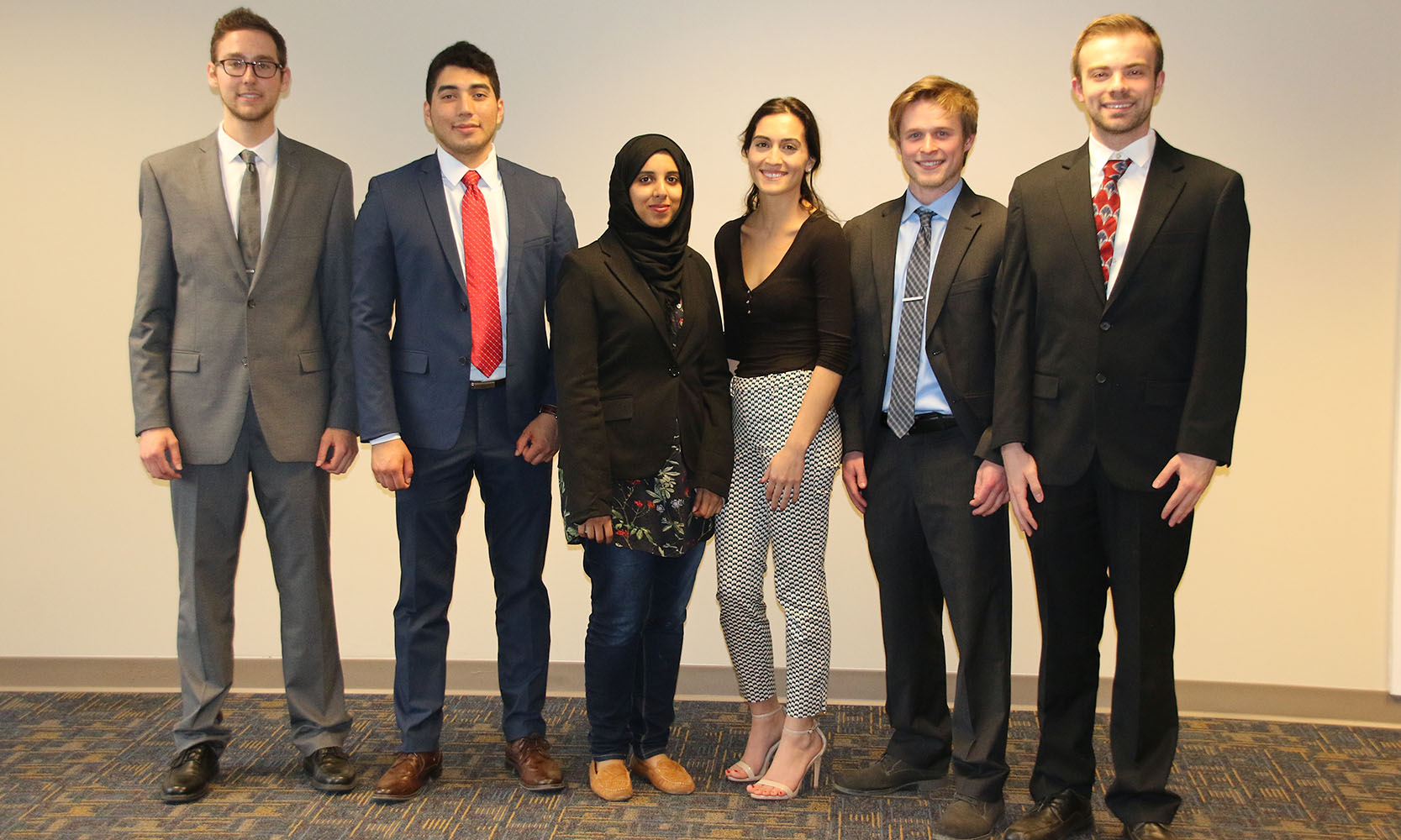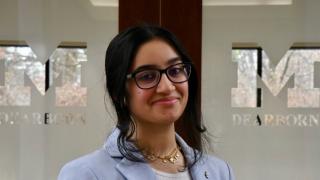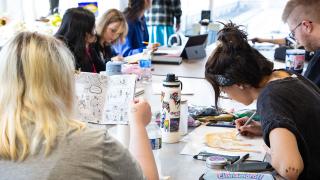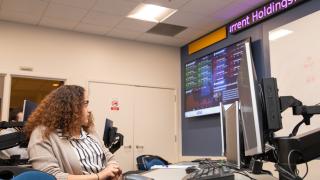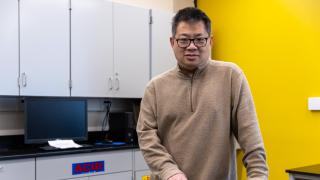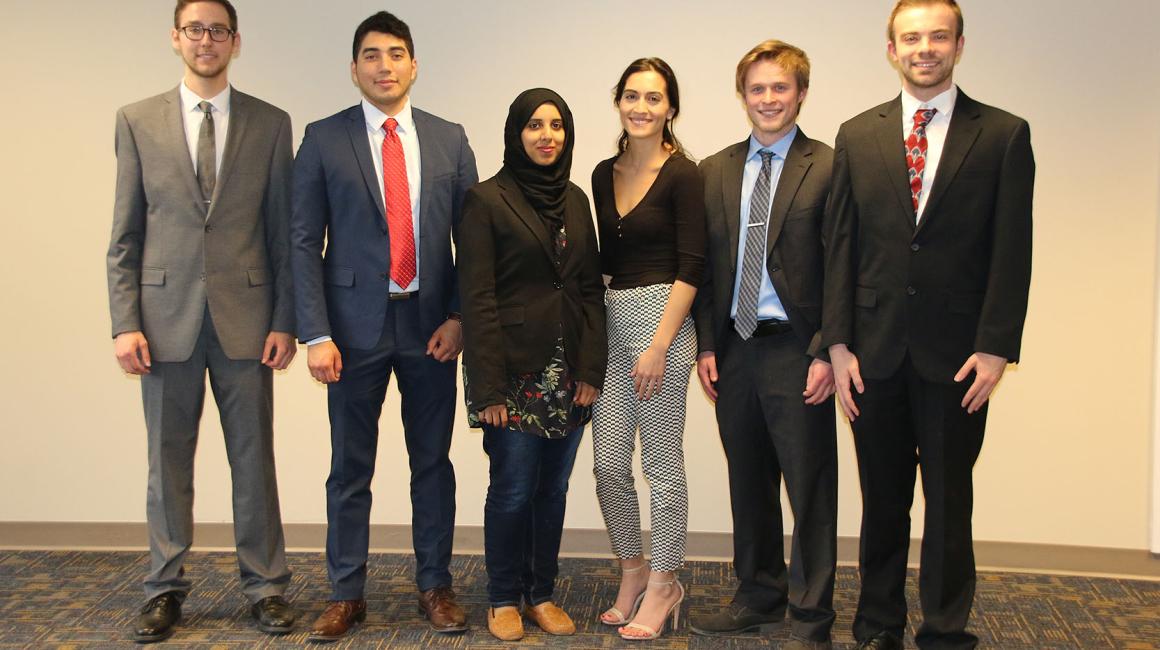
Papaya. Potatoes. Bananas.
This isn’t a grocery list—these are essential elements in Atheer Tabook’s business plan.
Presenting at the 2017 College of Business Idea Pitch Competition, Tabook shared how she creates skin care products from dehydrated organic fruits and vegetable peels and seeds in her kitchen. And she’d like to bring her idea—DeHyde It—to campus and beyond.
“After you eat, there are still useful parts to the plants, but we throw them away. Peels and seeds contain antioxidants, vitamins and minerals—40 to 60 percent of the overall nutritional value of the fruits and vegetables themselves. They can be used to speed healing, lighten blemishes and exfoliate if you use them regularly,” said Tabook, who dehydrates and crushes the discarded plant parts, and later adds honey, cinnamon, lemon juice or yogurt to the peel and seed powder. “I make organic soap and skin masks all of the time. I know it works.”
The pitch competition, which took place April 12 in Fairlane Center North, had 11 teams competing for $5,000 in scholarship prizes and networking opportunities and gaining business experience.
“When we talk to employers we hear common themes in the skills they are looking for—creativity, critical thinking, clear communications. This competition allows students to develop and demonstrate all of these skills and put them together in a cohesive manner,” said College of Business Dean Raju Balakrishnan.
Students participating in the event had five minutes to pitch their business idea either as a team or as an individual to a panel of judges. The panel rated the pitches based on both the presentation and the quality of the business idea.
“The goal of tonight is to promote the entrepreneurial environment of the University of Michigan-Dearborn campus,” said iLabs Director Tim Davis. “This is an environment where students feel they can create ideas and receive the support they need to cultivate those ideas. We want them to know that this is the time and place to take risks.”
Tabook, a 2017 Difference Maker and senior studying microbiology, said she got her idea to create skin care products from recycling natural everyday ingredients from knowledge that she’s gained from her father, an agricultural engineer.
But it was the pitch competition that got Tabook, who is from Oman, thinking differently about her interest in organic food and science.
“I have to give credit to this competition on helping me think about how I can put my own touch on what I have learned and think entrepreneurial about it,” she said. “It has given me skills and concepts to better shape my ideas.”
Talking in front of judges—who came from organizations like Ford Motor Company, the Troy Chamber of Commerce, Brut Detroit and Forgotten Harvest—Tabook shared the cost analysis, the lack of direct competition and her target market. For her DeHyde It idea, she was awarded $1,000.
Other pitch winners were Salima Mrech for her organic baby food home delivery service HealthyBib, and Lukas Lorincz, William Mahaffey, Adrian Andrade and Dash Fejza for Smoothie Guys, a campus-focused food delivery service.
Tabook said she’s going to use the money to help spread awareness about using the beneficial parts of everyday food items and to buy a dehydrator to make drying the peels and seeds more time efficient in the DeHyde It powder-making process. She said this year’s competition helped her realize the business potential of her organic skin care line.
She said the money is helpful, but what she has really taken with her from the experience is learning how to market herself and her ideas.
“This is my chance to get someone interested and to make DeHyde It real—not just something that I do for myself in my kitchen,” she said. “And I like the feedback that we get back from the experts. Listening to them is the best way to improve your idea and yourself.”

